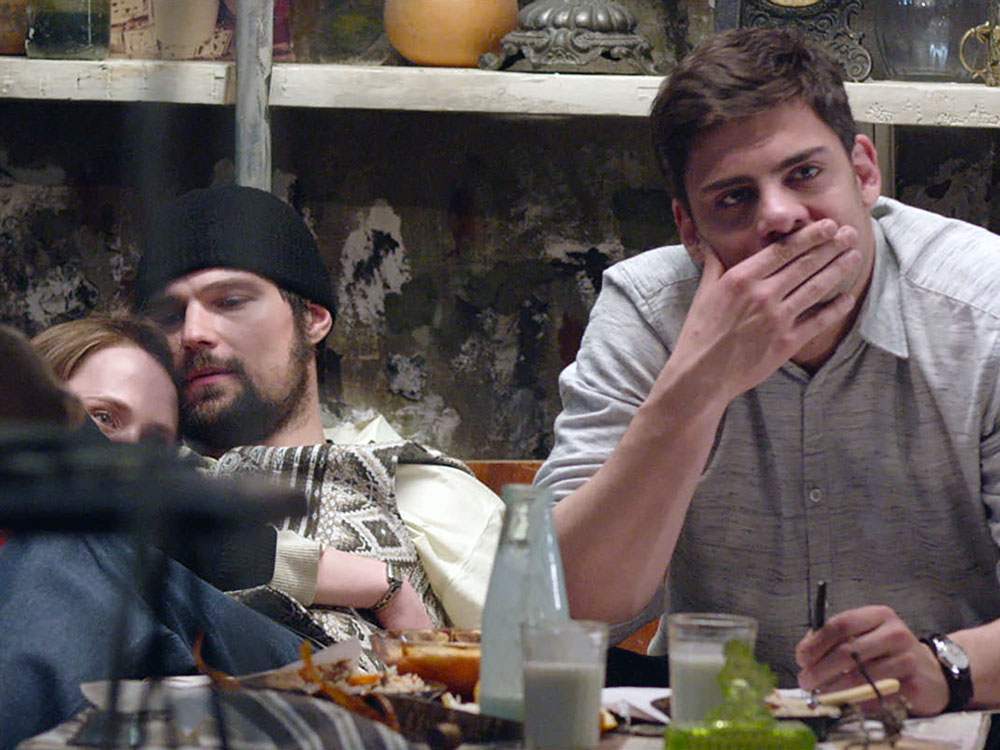Siia Ara (521 Years / 521 Anos) , dir. Adanilo, Brazil 2021, 5 min.
Nine visually striking short films showcase how Indigenous communities have endured centuries of colonisation, capitalist exploitation and violent attempts to erase their culture.
The screening will be followed by a Q&A with the festival curators and the filmmakers.
Programme
The Word Became Flesh (O verbo se Fez Carne) , dir. Ziel Karapotó, Brazil 2019, 6 min., Portuguese with English subtitles This Currency Is Not What Carries Me (O Que Me Leva Nao É Mercadoria De Bolso) , dir. Barbara Leite Matias, Brazil 2022, 6 min., Portuguese with English subtitles Art-Life Ritual Actions for Radical Tenderness , this video is an analogy the artist makes with the seeds she carries in her pocket and coins: a comparison between her native world and the capitalist and controlled civilised society where the sense of individual identity seems to be lost.Pinjawuli (The Poison Has Reached Me / O Veneno Me Alcançou) , dir. Bih Kezo. Brazil 2021, 2 min., Portuguese with English subtitles Itsuni Ügüno (Jungle Fever / Febre Da Mata) , dir. Takumã Kuikuro, Brazil 2022, 10 min., Itsuni Ügüno with English subtitles Siia Ara (521 Years / 521 Anos) , dir. Adanilo, Brazil 2021, 5 min.Lithipokoroda , dir. Lilly Baniwa, Brazil 2021, 28 min., Baniwa and Tukano with English subtitles Jayankiri , dir. Natali Mamani, Brazil 2021,10 min., Spanish & Portuguese with English subtitles Karaiw a’e wà (The Civilised / Os Civilizados) , dir. Zahy Tentehar, Brazil 2022, 15 min., Ze’eng Eté & Portuguese with English subtitles Karaiw a’e wà tackles issues of hybridity, assimilation, autonomy, and techno-centric civilisation, exploring Indigenous Futurism as a counter-methodology against the historical erasure of Indigenous knowledge, technologies and creative forms. The film questions the meaning of ‘civilisation’ and highlights the damaging effects of colonialism, where colonisers were labelled ‘civilised’ despite their lack of responsibility and consideration for society. In contrast, Indigenous peoples were deemed ‘uncivilised’, ‘savage’, and erased from history. The film poses questions about the consequences of civility and responsibility for marginalised communities, including neglecting socioenvironmental damage, collective responsibility, sustainability and health, and invites viewers to reflect on the importance of recognising and respecting Indigenous knowledge and culture. Xe Ñe’e (My Being / Meu Ser) , dir. Graci Guarani, Brazil 2022, 7 min, Guarani-Kaiowá & Spanish with English subtitles 










no. 236848.